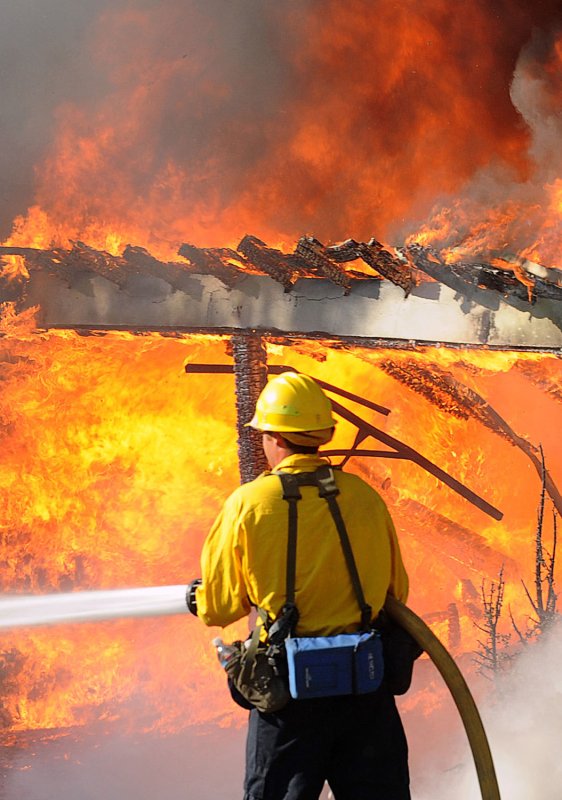SEATTLE, July 7 (UPI) -- U.S. scientists say they've determined climate -- not high temperatures or longer fire seasons -- is the most significant factor in wildfires.
Scientists at the U.S. Forest Service's Pacific Northwest Research Station and from the University of Washington said the recent increase in area burned by wildfires in the Western United States is a product of a complex relationship between climate and fuels that varies among different ecosystems/















